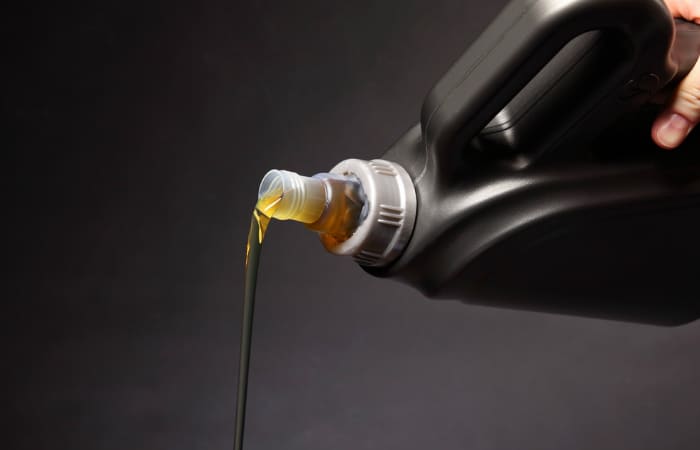Vehicle engines are typically made of metals. So, just imagine the intense friction produced when metal parts work with one another, mostly colliding and rubbing with each other in a continuous rhythmic pattern. Friction produces heat, making it a hazard if there is an inadequate amount of oil inside the car. The worst-case scenario is when extreme heat totally destroys an automobile in just a snap.
Thanks to the discovery of different motor oils, engines are effectively lubricated. To help you avoid an overheating engine, how often should you change your oil?
Why Should You Change Your Oil?
First things first, what exactly happens when you totally forget to change your dirty oil? We are not just talking about oil that picks up a lot dirt in the long run; dirty oil also means that it could have accumulated tiny pieces of engine debris. Remember when we said that engines are usually composed of metals? Then imagine the consequences if tiny metal pieces circulate around the engine through the dirty oil.
Extremely high temperatures lead to warped engine components. However, that is just the initial damage. The worst thing that may happen is total shutdown of the engine way before you successfully reach your destination. You really have to replace your dead engine immediately. Sounds easy enough, right? The real challenge is to spend thousands of dollars for a new engine.
What Is the “3,000-Mile Myth”?
In the past, most car owners believed that oil should be replaced every 3,000 miles. However, with modern technology, more high-tech cars are manufactured. These innovative cars, specifically the ones produced since the early 2000s, do not need the 3,000-mile standard anymore. The main reason is their engine’s more meticulous design and construction. Additionally, the overall chemistry of today’s motor oils is more effective than the previous versions.

What are the possible consequences of changing oil every 3,000 miles? When you throw away good motor oil, you are also wasting money. Waiting longer before replacement ensures that the current oil you are using is perfectly utilized. In addition, you are harming the environment when you regularly discard oil.
How Often Should You Change Your Oil?
Now that we are aware about the “3,000-mile myth” being pushed by many experts and manufacturers, it is time to finally identify how often you should change your oil. There are four standards available:
Mileage
The standard range starts from 5,000 miles up to more than 10,000 miles. There is a wide range for a lot of factors affect oil performance such as your driving habits and the engine’s quality.

Owner’s Manual
We cannot provide one specific number for it still depends on your car. A lot of experts still recommend checking your owner’s manual. Aside from plainly reading the manual, you should also consider your driving habits and usual travel conditions. Specific factors include driving short distances, stepping on the brakes most of the time due to traffic jam, keeping your vehicle in the garage for a long time, and living in a cold or humid area with rough roads.
Just a quick explanation on why driving short distances affects your oil’s performance: if you always take short trips, your engine and oil cannot entirely warm up most of the time. A cool oil cannot absorb contaminants from the internal combustion properly, failing one of its functions which is to clean the engine.
Oil Analysis
Some car owners are actually sending oil samples to appropriate laboratories for analysis. It may be a hassle, but this method receives the most accurate recommendations about your car’s particular oil maintenance standards. The usual price for every analysis is only $25. The best part? Aside from how often you should change your oil, additional information may also include your car’s underlying issues.
Dashboard Indicator
Not all vehicles have this awesome feature. That is unfortunate because this type of dashboard indicator is so convenient. As soon as this specific indicator lights up, it tells you that only a small percentage of functional oil is left. Obviously, you need to replace your oil as soon as possible. Many Honda automobiles have this feature.
How Should You Select the Right Oil for Your Car?
If it is time for replacement and you are planning to try another type of oil, we have a brief guide that you should check out first:
Premium Conventional Oil
When it comes to the standard, this is it. To be more specific, premium conventional oil is the standard type for newly bought cars. Every top brand has an option for Service Level (SL) in different viscosity levels. Regarding the subtypes, 5W-20 and 5W-30 oils are best for cold temperatures. Meanwhile, 10W-30 is a more unique type, more useful for high ambient temperatures.
Full Synthetic Oil
For high-tech engines, full synthetic oil is perfect. If you need this type, focus on the brand’s label first if it passed stringent special tests. These tests prove that the product has better performance when we talk about crucial things such as protection from deposits, viscosity index, lubricity even when it gets hot, and smooth flow despite cold temperatures. Just a heads-up, this type of oil is a lot more expensive than others.
Synthetic Blend Oil
What is mixed with synthetic oil to achieve a standard blend? Simple: organic oil. These two oils can protect your car from heat and heavy loads. Their blend evaporates less, increasing fuel economy. It is perfect for big vehicles such as SUVs and pickup trucks. Another good news is how affordable it is, almost the same as the low prices of premium conventional oil.
Higher-Mileage Oil
It is already obvious that this oil is formulated for vehicles with higher mileage. If your odometer has 75,00 miles or more, higher-mileage oil is a good choice. It is even more useful for old vehicles since it contains conditioners that can flow into hardened crankshaft seals. It can restore the seals’ shape and bring back their flexibility. Higher-mileage oil is also more likely to have a huge amount of additives that slow the engine’s aging process.
Summary
Before we end, how often should you change your oil? In case you have forgotten, the range begins from 5,000 miles up to 10,000 miles or more. However, it is crucial that you should check your owner’s manual first.
Let’s not forget about another component essential for maintaining excellent oil performance. Check out the best car oil filters! Nonetheless, you may also check out our take on how often to change transmission fluid.








